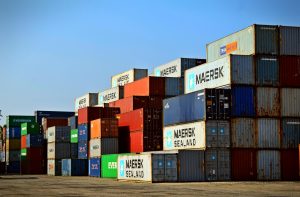While most companies are still figuring out how to hire basic software developers from Latin America, forward-thinking businesses are already tapping into the region’s explosive Web3 and blockchain talent pool. Here’s everything you need to know about hiring LATAM blockchain developers who are building the future of decentralized technology.
Hire the best developers in Latin America. Get a free quote today!
Contact Us Today!Why LATAM Is Becoming the Web3 Capital of the Americas

Latin America isn’t just participating in the Web3 revolution … it’s leading it. The region hosts thriving Web3 ecosystems with projects like Patex Network, which won “Best LATAM Blockchain Ecosystem of the Year 2023” at the Future Innovation Summit in Dubai, and Argentina leads the region in cryptocurrency value received at an estimated $91.1 billion, only slightly ahead of Brazil’s $90.3 billion.
But here’s what most hiring managers don’t realize: LATAM developers aren’t just adopting Web3 technology—they’re creating it.
The Numbers That Will Shock You
- 4 of the top 20 crypto-adopting countries globally are in LATAM (Brazil, Mexico, Venezuela, Argentina)
- Major Web3 projects like Decentraland (virtual reality platform) originated from Argentina
- Venezuela’s crypto growth exceeded 110% year-over-year, making it one of the fastest-growing markets globally
- Brazil’s Blockchain.RIO 2025 expects over 20,000 attendees, cementing the country as a Web3 hub
Country-by-Country Breakdown: Where to Find Your Next Blockchain Developer
🇦🇷 Argentina: The Web3 Powerhouse
Why Argentina Dominates:
- Home to Decentraland, one of the world’s leading metaverse platforms
- Strongest English proficiency in the region for Web3 roles
- Time zone advantage: Only 1-2 hours ahead of EST
- Cost advantage: 40-60% less than US blockchain developers
Specializations:
- DeFi protocol development
- Smart contract auditing
- Metaverse and VR applications
- Cross-chain bridge development
Average Salaries (2025):
- Junior Blockchain Dev: $45,000 – $65,000
- Senior Blockchain Dev: $75,000 – $120,000
- Smart Contract Auditor: $90,000 – $150,000
🇧🇷 Brazil: The Adoption Leader
Why Brazil Is Your Goldmine:
- Largest developer population in LATAM (470,000+ total)
- Leading crypto adoption with institutional backing
- The Drex pilot program (hybrid CBDC/smart contract platform) has prompted major banks to embrace Web3
- Thriving startup ecosystem with Web3 focus
Specializations:
- Enterprise blockchain solutions
- CBDC development
- Payment protocol development
- Institutional DeFi platforms
Average Salaries (2025):
- Junior Blockchain Dev: $40,000 – $55,000
- Senior Blockchain Dev: $70,000 – $110,000
- Blockchain Architect: $95,000 – $140,000
🇲🇽 Mexico: The Rising Star
Why Mexico Is Exploding:
- Perfect time zone alignment with US operations
- Growing government support for blockchain initiatives
- Strong fintech foundation transitioning to Web3
- 124,000 tech graduates annually with increasing blockchain focus
Specializations:
- Cross-border payment solutions
- Supply chain blockchain applications
- Gaming and NFT development
- Remittance platform development
Average Salaries (2025):
- Junior Blockchain Dev: $42,000 – $58,000
- Senior Blockchain Dev: $68,000 – $105,000
- DeFi Protocol Developer: $85,000 – $125,000
🇨🇴 Colombia: The Innovation Hub
Why Colombia Is Emerging:
- Government-backed blockchain initiatives
- Strong cybersecurity foundation perfect for Web3
- Cultural alignment with US business practices
- Rapidly growing tech education programs
Specializations:
- Security-focused blockchain development
- Compliance and regulatory technology
- Decentralized identity solutions
- Cross-border trade platforms
Average Salaries (2025):
- Junior Blockchain Dev: $38,000 – $52,000
- Senior Blockchain Dev: $62,000 – $95,000
- Blockchain Security Specialist: $75,000 – $115,000
What Makes LATAM Blockchain Developers Different (And Better)
1. Real-World Crypto Experience
Unlike developers who’ve only worked with crypto in theory, LATAM developers live in economies where cryptocurrency is used daily for remittances, inflation hedging, and cross-border transactions. They understand the practical applications because they use them.
2. Cultural Innovation Mindset
Latin American cultures emphasize respect, hierarchy, and personal relationships, leading to stronger team relationships and improved retention while maintaining an innovative edge born from economic necessity.
3. Perfect Time Zone Alignment
Work with your blockchain developers in real-time. Most LATAM developers work within 1-3 hours of US time zones, enabling:
- Live debugging sessions during market volatility
- Real-time smart contract deployment oversight
- Immediate response to DeFi protocol issues
4. Cost-Effective Excellence
Get senior-level blockchain expertise at 40-60% of US costs without compromising quality. Your budget stretches further while maintaining the same technical standards.
Technical Skills Assessment: What to Look For
Core Blockchain Competencies
- Smart Contract Development: Solidity, Vyper, Rust (for Solana)
- Blockchain Platforms: Ethereum, Polygon, Binance Smart Chain, Solana, Avalanche
- Development Frameworks: Truffle, Hardhat, Foundry
- Testing Tools: Ganache, Waffle, Forge
- Security Auditing: Knowledge of common vulnerabilities (reentrancy, flash loan attacks)
Advanced Web3 Skills
- DeFi Protocols: AMMs, lending platforms, yield farming
- NFT Development: ERC-721, ERC-1155, marketplace integration
- Cross-chain Development: Bridge protocols, multi-chain deployment
- Governance: DAO development, token economics
- Layer 2 Solutions: Optimism, Arbitrum, Polygon
LATAM-Specific Advantages
- Real-world DeFi usage: Many have personal experience with DEXs, lending protocols
- Cross-border payment expertise: Understanding of remittance flows and stablecoins
- Regulatory awareness: Experience navigating complex financial regulations
Vetting Process: Beyond Technical Skills
1. Portfolio Review Focus
Look for developers who can show:
- Live deployed contracts with verified source code
- Gas optimization examples (crucial for cost-effective development)
- Security audit experience or security-focused development
- Multi-chain deployment experience
2. Cultural Fit Assessment
- Innovation mindset: How do they approach novel blockchain challenges?
- Risk management: Understanding of smart contract risks and mitigation
- Community involvement: Active in Web3 communities, DAOs, or local blockchain groups
- Continuous learning: The Web3 space evolves rapidly—are they keeping up?
3. Communication Excellence
Web3 projects require clear communication due to:
- High-stakes deployments (immutable smart contracts)
- Community management (many Web3 projects are community-driven)
- Technical documentation (critical for open-source projects)
Legal and Compliance Considerations
Cryptocurrency Regulations by Country
Argentina:
- Generally crypto-friendly regulatory environment
- Clear guidelines for cryptocurrency businesses
- Favorable for cross-border crypto development work
Brazil:
- Comprehensive regulatory framework in development
- Central bank backing for blockchain innovation
- Strong legal protections for international contractors
Mexico:
- Regulatory clarity emerging for fintech and crypto
- Government support for blockchain initiatives
- Straightforward contractor agreements
Colombia:
- Progressive approach to cryptocurrency regulation
- Strong data protection laws benefit client security
- Government blockchain initiatives create skilled talent pool
Compliance Expertise Areas
LATAM blockchain developers often excel in:
- AML/KYC implementation for DeFi protocols
- GDPR compliance for Web3 applications handling EU data
- Securities law awareness for token development
- Cross-border payment regulations
Remote Team Building for Web3 Projects
Communication Best Practices
- Async-first communication: Use tools like Discord, Telegram for community-style updates
- Regular code reviews: Critical for smart contract security
- Transparent development: Use public repositories when possible
- Community involvement: Encourage participation in Web3 governance and discussions
Project Management for Blockchain Development
- Sprint planning around network conditions: Consider gas prices and network congestion
- Security-first development: Build in audit time and testing phases
- Community feedback loops: Involve stakeholders in development process
- Documentation emphasis: Critical for open-source and auditing requirements
Success Stories: LATAM Web3 Projects Changing the World
Decentraland (Argentina)
- Founded: Argentina-based team
- Achievement: Leading metaverse platform with $MANA token
- Impact: Proved LATAM can build world-class Web3 infrastructure
Ripio (Argentina)
- Focus: Cryptocurrency exchange and DeFi platform
- Scale: Operating across multiple LATAM countries
- Innovation: Bridging traditional finance with DeFi
Patex Network (Regional)
- Achievement: Won “Best LATAM Blockchain Ecosystem of the Year 2023”
- Innovation: Custom Layer 2 blockchain for CBDCs and regulated cryptocurrencies
- Impact: Over 100,000 users with $10 million in monthly trading volume
Cost-Benefit Analysis: ROI of Hiring LATAM Blockchain Developers
Cost Comparison (Annual Total Compensation)
| Role | US Cost | LATAM Cost | Savings |
|---|---|---|---|
| Senior Blockchain Developer | $180,000 | $85,000 | 53% |
| Smart Contract Auditor | $220,000 | $120,000 | 45% |
| DeFi Protocol Developer | $200,000 | $105,000 | 48% |
| Blockchain Architect | $250,000 | $140,000 | 44% |
Hidden Value Additions
- 24/7 development cycles: Overlap with US hours enables continuous development
- Cultural diversity: Different perspectives lead to more innovative solutions
- Market insights: Understanding of LATAM crypto adoption patterns
- Cost scalability: Easier to build larger teams within budget constraints
Getting Started: Your 30-Day Action Plan
Week 1: Research and Strategy
- Define your specific blockchain technology needs
- Determine which LATAM countries align with your requirements
- Set up initial communication channels (Discord, Telegram, etc.)
- Research local Web3 communities and job boards
Week 2: Talent Sourcing
- Post on LATAM-specific job boards and Web3 communities
- Connect with local blockchain meetups and conferences
- Partner with specialized LATAM Web3 recruiting agencies
- Leverage GitHub and GitLab to find active contributors
Week 3: Vetting and Interviews
- Conduct technical assessments focused on Web3 skills
- Review portfolios and live deployed contracts
- Assess cultural fit and communication skills
- Check references from previous Web3 projects
Week 4: Onboarding and Integration
- Set up secure development environments
- Establish communication protocols and workflows
- Integrate with your existing development team
- Begin with a pilot project to assess collaboration
The Future of LATAM Web3 Development
Emerging Trends to Watch
- Central Bank Digital Currencies (CBDCs): Brazil’s Drex pilot program is driving institutional Web3 adoption
- Cross-border payments: Stablecoin remittances gaining massive traction
- Regulatory clarity: Governments creating frameworks that support innovation
- Educational initiatives: Universities across 12 Brazilian cities are adding blockchain curriculum
Investment Growth
Over 160 Web3/Blockchain investors are actively funding projects in LATAM, creating a robust ecosystem of:
- Well-funded startups needing blockchain talent
- Experienced developers with real project experience
- Innovation hubs in major cities
- Government support for blockchain initiatives
Conclusion: Your Competitive Advantage Awaits
While your competitors are still debating whether to hire basic LATAM developers, you can capture the region’s world-class blockchain and Web3 talent. The developers building tomorrow’s decentralized internet are working in Buenos Aires, São Paulo, Mexico City, and Bogotá—often at a fraction of Silicon Valley costs.
The question isn’t whether LATAM will become a Web3 powerhouse—it already is. The question is whether you’ll be early enough to secure the best talent before everyone else catches on.
Ready to build your Web3 dream team? The future of decentralized technology is being written in Latin America. Make sure your company is part of that story.
Looking to hire top blockchain and Web3 developers from Latin America? Contact Next Idea Tech today for access to our vetted network of LATAM Web3 specialists who can accelerate your blockchain projects.
Frequently Asked Questions
Q: How do I ensure smart contract security when working with remote LATAM developers?
A: Focus on developers with audit experience, implement rigorous testing protocols, and consider partnering with LATAM security firms that specialize in blockchain auditing.
Q: What’s the learning curve for LATAM developers transitioning to Web3?
A: Many LATAM developers already use cryptocurrency daily, giving them practical Web3 experience. Technical transitions typically take 2-3 months with proper mentoring.
Q: How do I handle intellectual property protection for blockchain projects?
A: Work with legal experts familiar with both US and LATAM IP law. Most LATAM countries have strong IP protections, especially Argentina and Brazil.
Q: What time zones should I expect when working with LATAM blockchain developers?
A: Most LATAM developers work within UTC-3 to UTC-6, providing 4-6 hours of overlap with US Eastern Time and full overlap with Central/Mountain/Pacific times.
Q: How much do blockchain developers cost in Latin America?
A: Senior blockchain developers in Latin America cost $75,000-$120,000 annually, representing 40-60% savings compared to US developers while maintaining the same technical quality and offering perfect time zone alignment.
Q: Are LATAM developers experienced with specific blockchain platforms?
A: Yes, with regional preferences: Argentina (Ethereum, Polygon), Brazil (enterprise blockchains), Mexico (payment-focused chains), Colombia (security-focused platforms).



